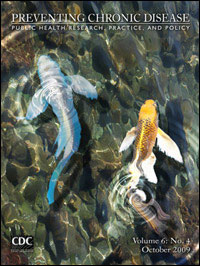Meditation and Health
 Tell your health care providers about any complementary and alternative practices you use. Give them a full picture of what you do to manage your health. Do not use meditation as a replacement for conventional care or as a reason to postpone seeing a doctor about a medical problem.
Tell your health care providers about any complementary and alternative practices you use. Give them a full picture of what you do to manage your health. Do not use meditation as a replacement for conventional care or as a reason to postpone seeing a doctor about a medical problem.
Many people practice meditation for a number of health-related purposes. A 2007 national government survey found that 9.4% of respondents had used meditation in the past 12 months.
What is meditation?
 The term meditation refers to a group of techniques which may be practiced for many reasons, such as to increase calmness and physical relaxation, to improve psychological balance, to cope with illness, or to enhance overall wellness. Most types of meditation have four elements in common:
The term meditation refers to a group of techniques which may be practiced for many reasons, such as to increase calmness and physical relaxation, to improve psychological balance, to cope with illness, or to enhance overall wellness. Most types of meditation have four elements in common:
A quiet location. Meditation is usually practiced in a quiet place with as few distractions as possible. This can be particularly helpful for beginners.
A specific, comfortable posture. Depending on the type being practiced, meditation can be done while sitting, lying down, standing, walking, or in other positions.
A focus of attention. Focusing one's attention is usually a part of meditation. For example, the meditator may focus on a mantra (a specially chosen word or set of words), an object, or the sensations of the breath.
An open attitude. Having an open attitude during meditation means letting distractions come and go naturally without judging them.
How can meditation affect my health?
It is not fully known what changes occur in the body during meditation; whether they influence health; and, if so, how. Research is under way to find out more about meditation's effects, how it works, and diseases and conditions for which it may be most helpful.
 The National Center for Complementary and Alternative Medicine (NCCAM) is the federal government's lead agency for scientific research on complementary and alternative medicine (CAM). It is 1 of the 27 institutes and centers that make up the National Institutes of Health within the U.S. Department of Health and Human Services. Some recent NCCAM-supported studies have been investigating meditation for relieving stress in caregivers for elderly patients with dementia and for relieving asthma symptoms. A study published in the April 2009 issue of Preventing Chronic Disease researched use of meditation and other complementary and alternative practices in patients suffering from arthritis. See full article.
The National Center for Complementary and Alternative Medicine (NCCAM) is the federal government's lead agency for scientific research on complementary and alternative medicine (CAM). It is 1 of the 27 institutes and centers that make up the National Institutes of Health within the U.S. Department of Health and Human Services. Some recent NCCAM-supported studies have been investigating meditation for relieving stress in caregivers for elderly patients with dementia and for relieving asthma symptoms. A study published in the April 2009 issue of Preventing Chronic Disease researched use of meditation and other complementary and alternative practices in patients suffering from arthritis. See full article.
Is meditation right for me?
Meditation is considered to be safe for healthy people but if you are thinking about using meditation practices to prevent asthma attacks, to control high blood pressure, to reduce arthritis pain, or for any other medical reason, be smart.
- Do not use meditation as a replacement for conventional care or as a reason to postpone seeing a doctor about a medical problem.
- Look for published research studies on meditation for the health condition in which you are interested.
- Tell your health care providers about any complementary and alternative practices you use. Give them a full picture of what you do to manage your health. This will help ensure coordinated and safe care.
More Information
CDC works 24/7 saving lives and protecting people from health threats to have a more secure nation. A US federal agency, CDC helps make the healthy choice the easy choice by putting science and prevention into action. CDC works to help people live longer, healthier and more productive lives.
Get email updates
To receive email updates about this page, enter your email address:
Contact Us:
- Centers for Disease Control and Prevention
1600 Clifton Rd
Atlanta, GA 30333 - 800-CDC-INFO
(800-232-4636)
TTY: (888) 232-6348 - cdcinfo@cdc.gov



